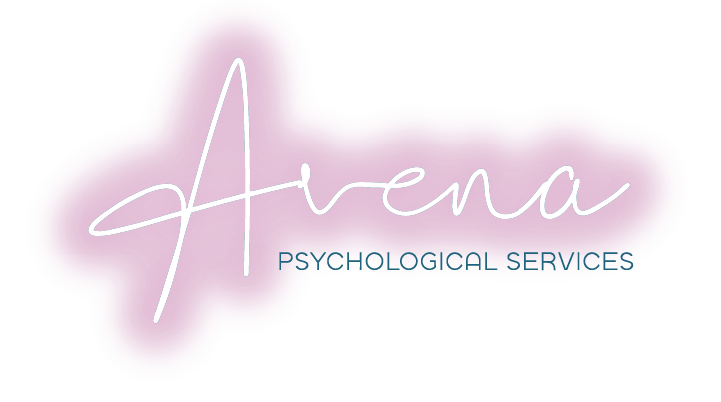You scroll the news and feel your stomach drop.
Another headline. Another argument. Another friend’s post that leaves you wondering if they even see the same world you do.
Maybe you’ve stopped bringing up certain topics with family. Maybe group chats feel more draining than fun. Maybe you’re holding tension in your body and don’t even realize it—until you cry over something small and wonder, Why do I feel so alone right now?
If any of this resonates, you might be experiencing something called feelings of alienation.
It’s a quiet, painful disconnection that often shows up during overwhelming times—like the ones we’re living through now. And while it can feel incredibly isolating, you’re not the only one carrying this weight.
At Avena Psychological Services, we help people name what they’re feeling, understand where it’s coming from, and begin to reconnect—with themselves and with others.
Let’s talk about what feelings of alienation actually are, and how you can begin to find your footing again.
What are the feelings that alienation produces?
Feelings of alienation aren’t always loud. They don’t always come with panic attacks or dramatic exits. Sometimes they creep in quietly—like a growing sense that you’re on the outside of something you used to feel part of.
Alienation can make you feel:
- Emotionally distant from people to whom you used to feel close
- Like no one really understands your values or experiences
- Hyper-aware of being “different,” politically, culturally, or emotionally
- Disconnected from your own identity or purpose
- Lonely, even when you’re surrounded by others
You might notice that conversations feel surface-level. That you’re going through the motions in relationships but are not really there. That your community doesn’t feel safe anymore.
These feelings of alienation can be subtle, but over time, they take a toll—on your mood, your nervous system, your sense of meaning.
You might not be able to fix everything happening in the world. But you can start by honoring what’s happening in you.
How to deal with feeling alienated?
Here’s the hard truth: feelings of alienation don’t always go away on their own. They need tending. Care. Gentle action.
But before you jump into solutions, try this:
- Name it. Saying “I feel alienated” out loud or journaling it can be a powerful first step. Naming the experience makes it real—and reminds you that you’re not just “being dramatic.”
- Locate it. Where in your life is this feeling coming up most? Family? Friendships? Community spaces? Or is it more internal—like you’re not quite connected to yourself?
- Validate it. These are stressful times. Political divides, economic pressure, social media overload—it all impacts your mental and emotional health. You are not weak for feeling this way.
Once you’ve made space for the feeling, you can begin to gently respond to it.
Here are a few ways to deal with feelings of alienation in a healthy way:
- Reach out to just one person you trust and be honest about how you’re feeling.
- Create or seek out spaces that reflect your values—online or offline.
- Set boundaries with people or conversations that leave you feeling erased or attacked.
- Engage in grounding routines that help you feel present (walking, cooking, meditating, music).
And if you’re struggling to do this on your own, therapy can be a lifeline. At Avena Psychological Services, we hold space for these difficult emotions—without judgment, without agenda. Just support.
What is an example of alienation of feelings?
Let’s say you’re someone who deeply values social justice or equality. And over the past few years, you’ve become more vocal about these beliefs.
But now, conversations with your family have become strained. You find yourself staying quiet at the dinner table. You smile through discomfort, but inside, you’re shrinking. You leave gatherings feeling anxious, frustrated, or invisible.
This is a textbook example of feelings of alienation—when your internal values or emotions are not mirrored, respected, or welcomed by people around you.
It doesn’t always have to be political. It might be emotional, too. Maybe you’re the only one in your friend group who’s grieving, or struggling financially, or questioning your career or identity. You show up, but you feel like a ghost in the room.
These experiences are painful—and they can also be deeply clarifying. They show you what matters to you. What you long for. What kind of connection you need more of.
The key isn’t to “fit back in.” It’s to find (or create) the spaces where you feel like you belong again.
What are the 5 elements of alienation?
To better understand feelings of alienation, let’s look at the five core elements psychologists often use to describe it:
- Powerlessness – Feeling like you have no control over your circumstances or how others treat you
- Meaninglessness – Struggling to find purpose or connection in the roles you play
- Normlessness – Feeling like the rules of society, community, or family no longer make sense or align with your values
- Isolation – Feeling emotionally or socially cut off from others, even those closest to you
- Self-estrangement – Feeling disconnected from your own identity, beliefs, or inner voice
If you’ve been feeling anxious, shut down, exhausted, or out of place lately, it might not just be “burnout” or “overwhelm.” It could be one—or more—of these five forms of alienation.
You are not the problem. The world is loud right now. The ground beneath us keeps shifting.
But even when you feel unmoored, there are ways to come back to yourself. Back to safety. Back to connection.
Final Thoughts: You Still Belong
Feelings of alienation can be quiet and slow. But they change how we see ourselves—and how we move through the world.
And during times of political upheaval or financial uncertainty, those feelings can intensify. You might feel more sensitive. More reactive. More alone.
But you are not alone.
At Avena Psychological Services, we work with people who are navigating these exact emotional landscapes—people who feel distant from their families, unsure in their communities, or disconnected from themselves.
You don’t need to have a clear “plan” to begin healing. You just need to start with honesty.
With curiosity. With care.
We’re here to help you name what you’re carrying, unpack what’s no longer serving you, and rebuild a sense of belonging—inside and out.
Because you do belong.
You’re not too much.
You’re not behind.
You’re just human—in a world that’s asking too much of all of us right now.
Let’s make space for that. Together.
Meet The Therapists You'll Work With & Get Scheduled Today!

Michael Cruz, LMHC
Licensed Mental Health
Counselor – NY

Luisa Enriquez, LSW
Licensed Social Worker – NJ

Katalin Vinczi-Sierra, LCSW
Licensed Clinical Social Worker – NJ
Contact us to schedule an appointment with a professional in New York or New Jersey.

